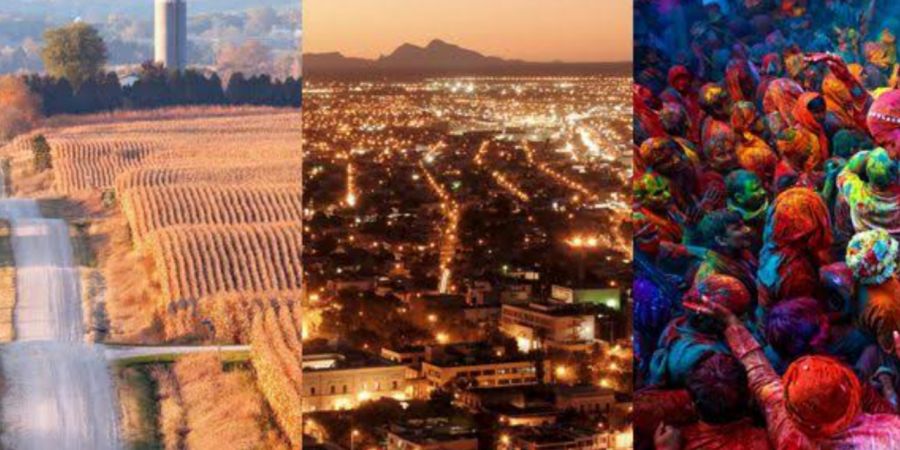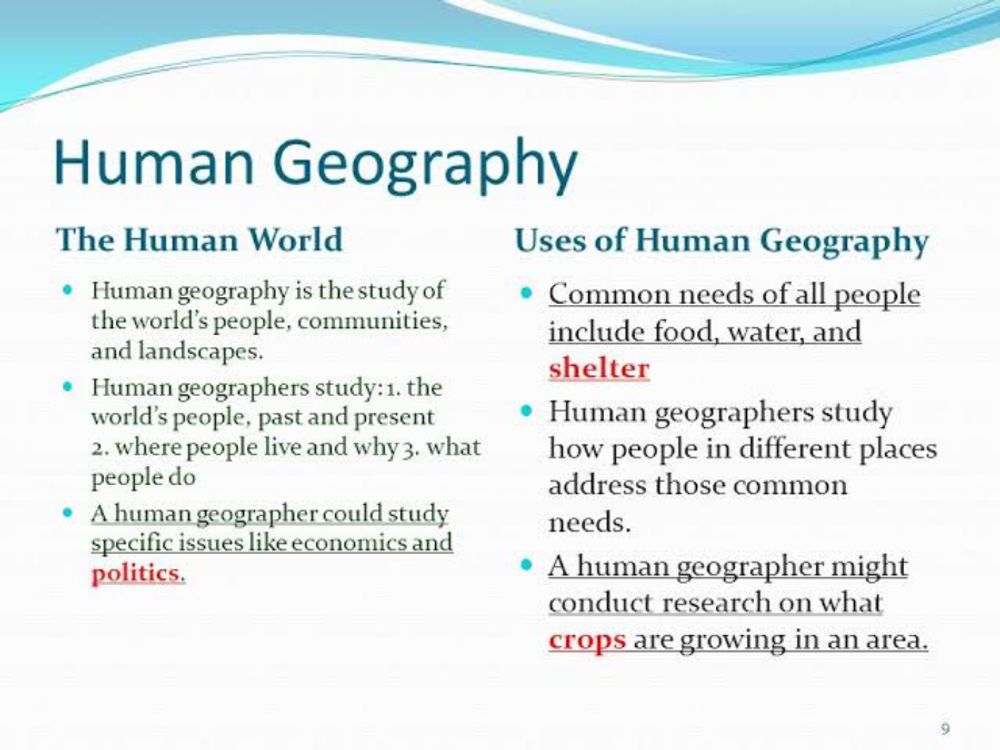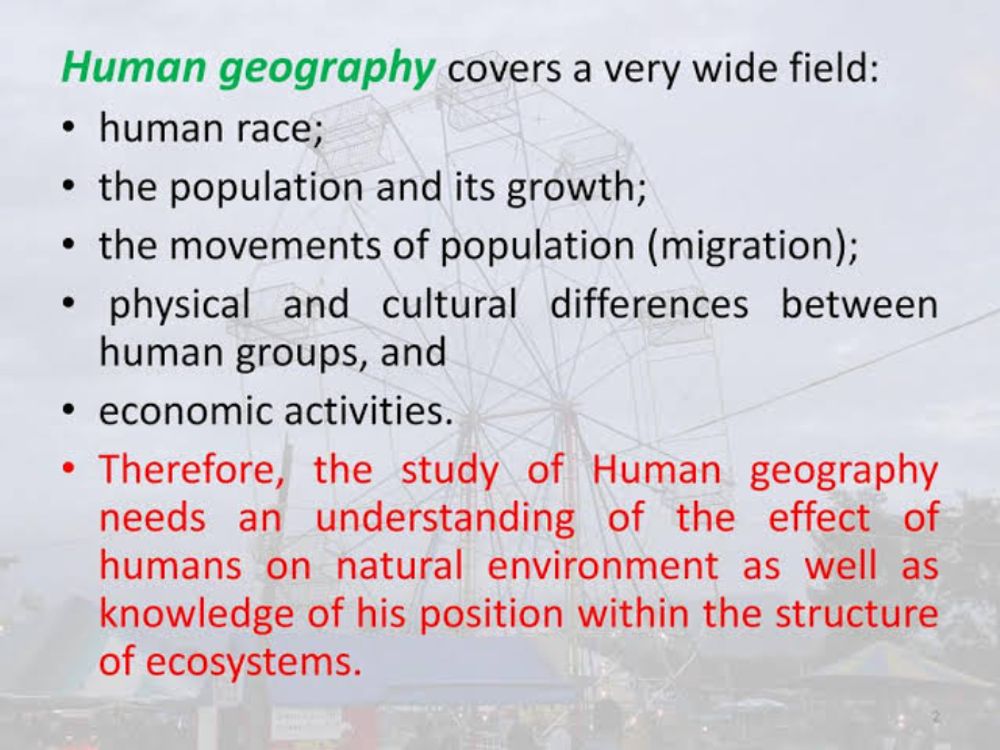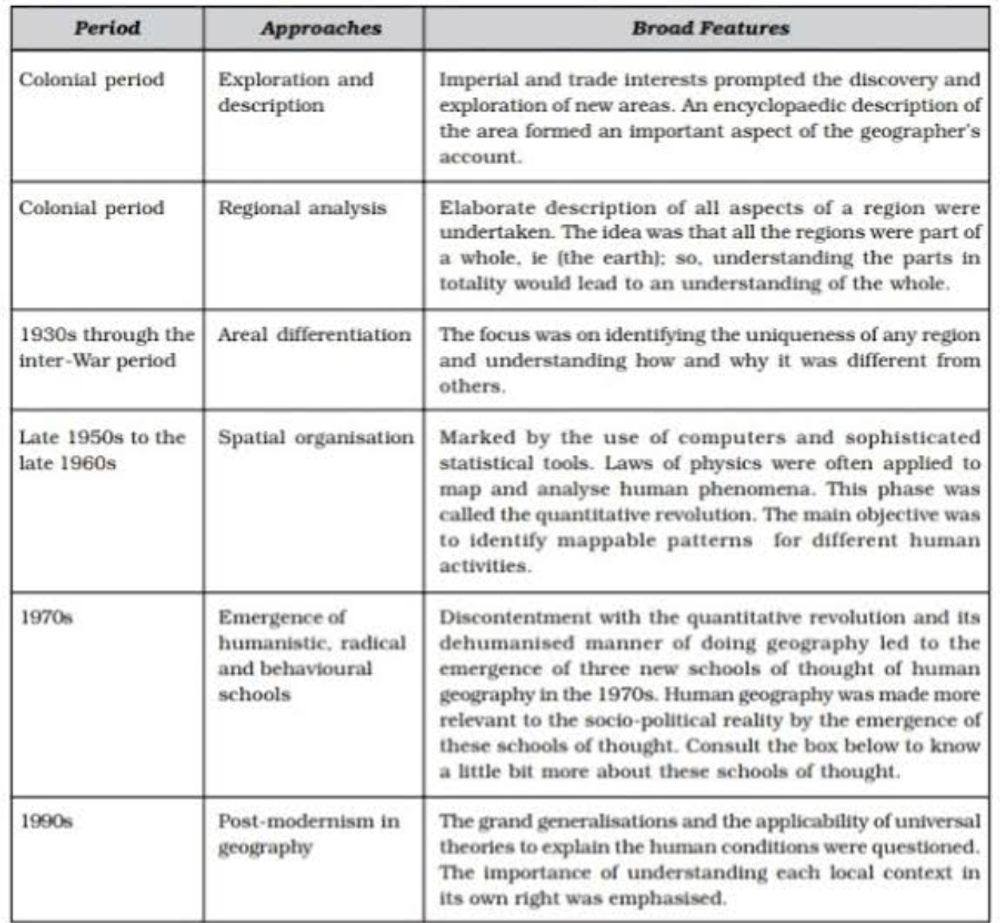

In this blog I am going to write about the subject oriented blogs belonging to Education Niche in this blog week.
Human Geography is the second major sub discipline of Geography next to Physical Geography. Focused on the study of culture of human societies and their interactions with the environment in relation to spatio-temporal perspective.
With respect to the nature and scope of Human Geography refers to the study of interrelationships dealing with people, place and environment as these factors vary from across the spatial and temporal locations.
The subject concentrates on the spatial organization as well as on processes shaping the lives & activities of people dealing with their interactions between place and physical habitat.

Geographers are of different opinions regarding the definition of the subject as:
"Human Geography is the synthetic study of relationship between human societies and earth's surface" - Friedrich Ratzel.
"Human Geography is the study of changing relationship between unresting man and unstable earth" - Ellen Churchill Sample
Remarkably human geography deals with the study of man and his adjustment to his physical environment.
In order to understand the scope of human geography for that we have to discuss more about major concerns of human geography.
In human geography the major thrust is on the study of human societies in relation to their natural or physical habitat.
While human geography has an enormous scope dealing with wide range of spatial distribution of human influence by the physical environment on culture and economy food and customs, language and literature of the people.
Human Geography and its scope has been associated with various subfields deals with the branch of human geography such as social & cultural geography, economic & political geography, medical and health geography, urban and rural geography, settlement geography, historical geography and environmental geography.
Furthermore the scope focused on the full sweep of qualitative and quantitative methods across from the social sciences and humanities that makes human geography is a systematic approach of Geography.
However more emphasis is laid on field work and mapping that made numerous contributions to develop a new approach to study new methods & techniques notably in the areas of Geospatial analysis and statistics that involves in the study of Remote sensing, GIS - Geographic Information Science, GPS - Global Positioning Systems and Cartography studies overall analysis related to map as a geographical tool.

Nevertheless in the long term development of human geography and its scope dealing with some specific new approaches - Exploration and Description of the late colonial period in which discovering the imperial and trade interests would be promoted to explore new areas of study.
While on the other hand Regional Analysis is another approach developed in the colonial era that seeks to focus on to elaborate all aspects of regions as whole. Through the inter war period of the late 1930 Aerial Differentiation has taken place in which studies about the uniqueness of any region and focus on the differences and similarities between one region to another.
Late 1950 to 1960 Spatial organisation revolved around the era marked by the use of computers and sophisticated statistics would be applied. Not only this Laws of Physics were also applied to maps in cartography and made analysis of human phenomena. This Phase came to be known as the Era of Quantitative Revolution.
In the late 1970s there was an emergence of humanistic,radical and behavioral schools. Housing, health and education were the major concerns associated with different aspects of social well being people in the welfare humanistic school.
Radical approach deals with the basic model of Marxian Theory that seeks to explain about the cause of poverty, deprivation and social inequality.
Behavioral approach of human geography deals with great emphasis on the live experience of social well being and social norms and laws.
Lastly, the era of Post- Modernism had begun in the 1990s in geography. The main purpose of this approach is to provide grand generalisation and applicability of universal theories to explain human conditions.

While on the other hand, the scope covers the entire relationship of man and his natural environment that deals with the way in which his activities are distributed. Although the scope covers the mosaic of culture, language, religion, customs and traditions alongwith the types and patterns of rural environment, site, size and growth of urban statement - towns and settlements - functional classification.
Human Geography encompasses the study of population - growth, density, distribution of the various parts of the world, demographic attributes, migration patterns, physical and cultural differences between human groups and economic activities.
In brief, we study the influence of spatial distribution of economic activities, industries, trade and commerce, modes of transportation and communication are also the important topics in human geography.
It embraces the objectives of liberal education, that helps to understand the world what we should occupy and seeks to explain about the facts and circumstances of people affecting various nations. Meanwhile from the geographical point of view it clarify the contrast in societies and cultures belonging to human landscapes as they have created in the various regions of the earth.
Thank You For Reading




